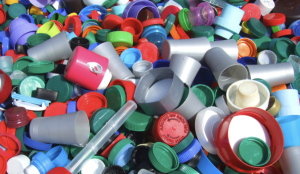
CFA Institute’s Senior Director Matt Orsagh, CFA, CIPM, spoke with Gabriel Thoumi, Head of the Plastics Program and Director of Financial Markets at Planet Tracker. In this podcast, Mr. Thoumi talks about the plastics industry, how it exists in every sector of the economy, and its impact on capital markets.
The plastic industry is vast, with about 350 to 400 million tons of plastics produced on an annually annual basis. And yet, what many investors may not realize is that plastics may very well be in every single one of their portfolios.
According to Gabriel Thoumi, head of the plastics program and director of financial markets at Planet Tracker, the level of investor engagement around plastics is “nascent and spotty at best,” simply due to because of the number of plastics. “It’s in every sector of the economy. Every analyst who has sector coverage would have some plastic exposure,” Mr. Thoumi adds.
Some of the biggest issues with plastics include waste management, toxic chemical release, and inefficient supply chains. Mr. Thoumi says that we are just starting to understand what is needed to achieve a sustainable plastic industry, which is to approach the use of plastic products from a “circular economy perspective.” That includes pursuing reuse and refill strategies, reducing the use of absolute amount of plastic, and addressing the health risk involved in plastic production. Mr. Thoumi adds, “There’s a lot of opportunity for smart investors to make quite a bit of money by investing in better technologies than others.”
Mr. Thoumi said notes that if investors step back, they will realize that plastic is in planes, so it’s in aviation. Plastic is in cars, so it’s in automotive. Plastic is in buildings, so it’s in real estate. Plastic is in your computers, so it’s in electronics. Plastic is in medical devices. Plastic is in food packaging. So, as investors simply coming come to that this realization, they may and simply asking the companies the most simple ask the most basic question: What is their company’s pathway and timeframe towards sustainable plastics? The answer may tell them all they need to know about the company’s commitment to achieving this goal.


